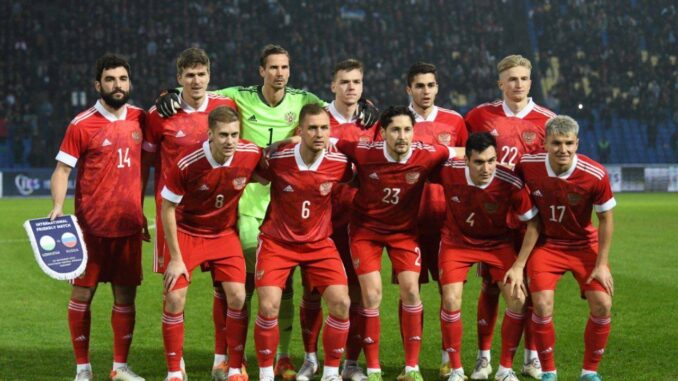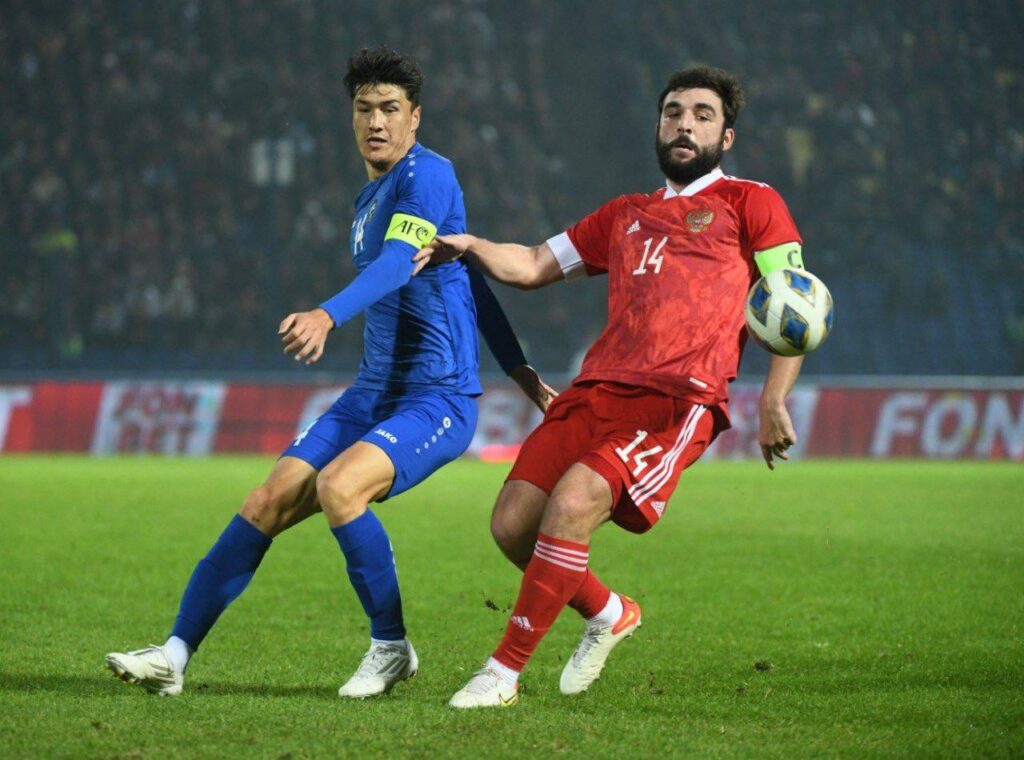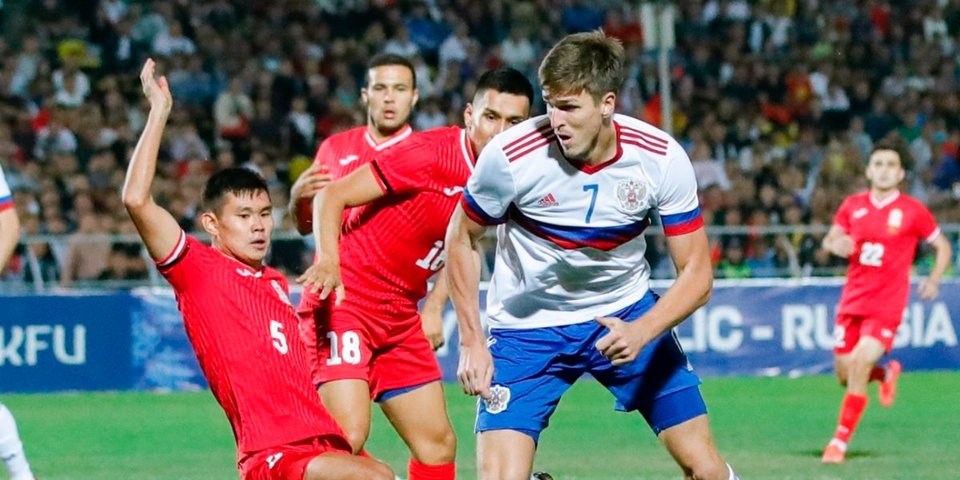
March welcomes the return of international football for 2023.
The first of 17 FIFA windows and 44 potential matchdays between now and the World Cup in 2026; the long trail towards USA, Canada and Mexico starts here.
With qualification itself not due to start until September, interest instead turns to the immediate future; be that in the form of new coaches, the likes of Jurgen Klinsmann in South Korea, and Carlos Queiroz in Qatar; or new players, with particular attention focused on the potential bolters aiming to grab a place on the plane to Qatar in time for the rapidly approaching AFC Asian Cup.
But while immediate concerns on the pitch are left simmering, the focus off the pitch continually returns to one matter: that of Russia’s pitch to join the AFC.
The will they, won’t they soap opera that doesn’t want to go away rears its head once again this week, as Russia head to Tehran to face Iran, before Iraq head the other way, to St. Petersburg, to face Sbornaya in their first home international in 16 months.
Russia opt to stay in no-man’s-land…for now
As things stand, Russia remains a footballing nomad; suspended from Europe following the breakout of the Ukrainian war in February 2022, whilst split internally on where to head next.
In December, Russian Football Union (RFU) boss Aleksandr Dyukov proposed the ultimatum on whether or not Russia should submit for a move to the AFC by the end of the year, in time to meet FIFA, UEFA and AFC protocols to participate in qualification for the World Cup in 2026.

Despite almost daily discussions over Christmas, the RFU Executive Committee remained split on whether to stick or twist. Concerns were raised that a move to Asia would expose Russia to a lower standard of football, remove access to the lucrative exposure of the UEFA Champions League, whilst limiting their financial power on world football.
The counter argument remains the same. With the ongoing war in Ukraine, now into it’s second year, with little respite from the Russian advance, even if the conflict was to come to an end in the short term, Russia’s presence in European international or domestic football feels a long way off.
With every given month, Russian football is hindered with a lack of continental or international action which sets back development, planning and stability at every level of the game. What Asia lacks in quality and financial clout, it offers in consistency.
The decision taken on the last day of 2022, however, was to reluctantly stick with the current situation, with Dyukov setting up extended talks with UEFA to map a way back to European football moving forward.
So, that puts a line through that then? Not just yet.
February’s AFC Congress in Manama, a buzz of political lobbying and secret handshakes at the best of times, was heightened further by the presence of a Russian delegation headed by Dyukov, invited out to Bahrain on a scoping mission of the Confederation, to keep open the option of Russia’s move to Asia, both with individual member associations and the president himself.
What can be now assured is sufficient enough backing from Asia, if Russia opted to move to the AFC. Significant backing across the membership, including the AFC Executive Committee, and within the ivory towers of AFC House, offers little resistance to any proposed confederation switch, even if the likes of Australia, Japan and South Korea, offer a rather loud protest.
Leaked discussions from February included RFU’s attempts to circumnavigate UEFA statutes in switching confederations within the notice period, in advance of the Asian World Cup qualification draw in July, while the AFC offered assurances of their cooperation in speeding up the process if given the green light.
While the theoretical route remains open for now, RFU chiefs still have a lot of work to do to convince those back home that the future well and truly is Asia.
Russia’s blurry vision of Asia
Russia’s recent involvement in Asian football has been limited and admittedly underwhelming.
Since their suspension from UEFA over a year ago, Russia has only faced Asian opposition – Central Asian opposition to be specific – Kyrgyzstan, Tajikistan and Uzbekistan in a series of friendly internationals in September and November.
In comparing these encounters, especially against the ongoing World Cup they could’ve been part of, the Russian public, mirrored by their media’s scepticism, lacked any real enthusiasm for the matches.

The standard of football was a significant drop, the pitches didn’t illustrate Asia’s very best, while even the television quality has been roundly mocked; with some viewers of a recent friendly between Russian champions Zenit St. Petersburg and Iranian club Sepahan, jokingly questioning whether Iran had even yet transitioned into the 21st century.
While their initial forays left a bad taste in their mouth, the upcoming challenges may sweeten things a tad. In the next week, Russia head to Tehran to face Iran, one of Asia’s very best, followed by a first home international in over a year against an improving Iraq team, who recently clinched the Gulf Cup.
Both games should see improvements in quality of the opposition, even if both sides are partially depleted of some of their European based stars, who have been advised against travelling to face Russia by their domestic employers – a lesson to be considered by the AFC moving forward.
The very presence of Porto’s Mehdi Taremi and Manchester United’s Zidane Iqbal, however, already helps generate some perceived prestige, potentially lacking in their earlier encounters.
We also heard last week of the long-awaited intentions of the Central Asian Football Association (CAFA) to hold an inaugural regional tournament this coming summer. A tournament that has long been mooted, yet fell continuously foul of the necessary political will or investment, remarkably gaining traction upon the support of guest side and sponsor, you guessed it, Russia.
A semi-competitive arena for Russia, which secures international football and allows a foothold in event management once again and increases exposure to boost interest back home, as well as developing engagement within Asia; notably with their already close Central Asian allies.
Their intentions in doing so however, are still up for debate. From the outside, the RFU’s moves continue to demonstrate a national association keen on moving closer to Asia, yet with the World Cup qualification draw set to be conducted in four months’ time Russia’s presence in this year’s cycle looks to be ebbing away rather quickly.
Another angle instead proposes that they are simply looking to demonstrate to UEFA what they’ve been missing. The almost daily media charade back in December, conveniently while the rest of the world concentrated on matters taking place in Qatar, has been argued as a ploy to distract Russian football from bemoaning their absence at the World Cup. As UEFA commences its European Championship qualifiers this March, yet again, making a noise, albeit in Asia, is arguably the only way to indicate they still exist.
While in this growingly tiresome love triangle, where Russia continue to play footsy with the AFC to stir up a reaction from UEFA, the ultimate question comes when Europe fail to react. In that, we already know Asia welcomes Russia to the table; but can Dyukov and Co. demonstrate to those back home that Asia is worth pursuing.
The coming month’s international friendlies may well offer a glimpse into Asian football’s future after all.
Photo: Uzbekistan Football Association
Listen to the latest The Asian Game Podcast




